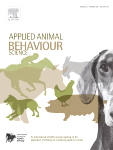Document type written answer published in theJournal Officiel of the French Republic
Authors: question: Mr Jorys Bovet (Rassemblement National - Allier). Answer: French Ministry of Agriculture and Food Sovereignty
Question: Mr. Jorys Bovet wishes to draw the attention of the Minister of Agriculture and Food Sovereignty to the long-distance transport of live animals. This Autumn 2023, the European Parliament will be asked to adopt a position on new measures to modify regulation no. 1/2005 of December 22, 2004 on the protection of animals during transport and related operations. A report by the European Court of Auditors dated April 17, 2023 reveals numerous shortcomings that threaten animals while they are being transported. Animals are transported over long distances, in disgraceful conditions, with no regard for the regulations currently in force. Thirst, hunger, cramped spaces, extreme heat and cold, lack of rest - these are just some of the types of neglect to which animals are subjected during transport. European rules are in existence, yet they do not appear to be effective. The transport duration for live animals is limited to 8 hours. This restriction is not respected in the case of more than one animal in three. The situation is worse when ships become held up in the Suez Canal or the Mediterranean Sea for administrative reasons. On January 30, 2023, at the EU AGRIPECHE Council, the Minister opposed the banning of the transport of live animals outside the European Union, a measure that could help reduce animal suffering. With 85% of the French public in favor of an end to the transport of live animals, how is it possible that we still tolerate these breaches now that animal welfare has become one of the main concerns of the French people? He therefore asks what has been put in place to control the conditions under which animals are transported over long distances, and what measures for the improvement of these conditions France intends to argue for when European regulations on the topic are revised.
Answer: As part of the "Farm to Fork" strategy, the European Commission plans to update European Union (EU) legislation on animal welfare, in order to bring to bear the weight of recent scientific analysis, to broaden the scope of the regulations and make it easier to monitor compliance with the legislation, thereby improving animal welfare in the EU more generally. It has first carried out a quality audit of the current legislation. This audit shows that the adoption of EU legislation on animal welfare has led to an improvement in the welfare of many animals in Europe. While some progress has been made, compliance with the regulations remains a major challenge in areas such as animal transport, particularly with regard to long journeys, the transport of young or pregnant animals, and livestock exports. A particular constraint on improvement is brought about by differing interpretations of European legislation by Member States, these being attributable in their turn to a lack of precise details in a number of the current regulations. Overly vague wording leads to differences of interpretation and/or drift, both of which are detrimental to animal protection and conducive to the distortion of competition. Improving animal welfare and combating animal abuse are priorities for the French government. In March 2023, the Government initiated a preliminary consultation as part of the review of animal welfare and protection legislation announced by the European Commission. The aim was to identify common ground among stakeholders, and to promote the benefits of French experience and the particular circumstances in France to European decision makers. With regard to animal transport, a number of actions intended to improve animal protection during transport were selected. The harmonization of transport control procedures between Member States, the need to provide a better framework to support the idea of an overall coordinator for long-distance journeys, and the creation of an animal transport observatory at European level have all been brought to the attention of the European Commission. Particular cross-cutting principles underpin the government's endeavours to update European legislation. In particular, France has called on the European Commission not to create a situation where European livestock farming once again suffers a distortion of competition or ceaes to be competitive. This means that work must be done to strengthen the degree of harmonization in the EU's internal market; it also means that the application of European standards by third countries (outside the EU) to the animal products they export to the EU should be improved, in a spirit of reciprocity. The French authorities have therefore proposed to the Commission that "mirror" measures should be properly incorporated into the documents that make up the forthcoming legislative package. France also takes the view that changes should be made in light of new scientific knowledge, the existence of alternative production methods and anticipatory impact studies. The government will pay close attention to the cost of transition, which should be shared by all those in the chain, down to the consumer. Last, France believes that the transformation of existing systems cannot take place instantaneously and that the transition must be thought of as a long-term process. It is essential to take into account the economic capacity of the industry to adapt over time to the new requirements, and to set deadlines for the entry into force of legislation in order to give professionals a clear understanding of the situation, particularly with regard to the amortization period for investments in livestock buildings.






